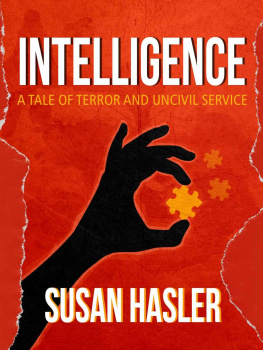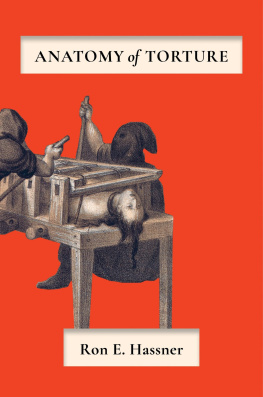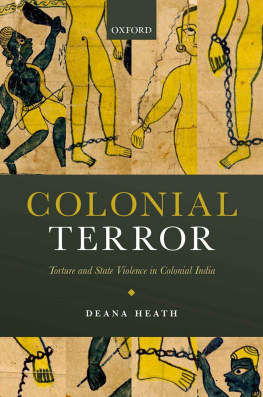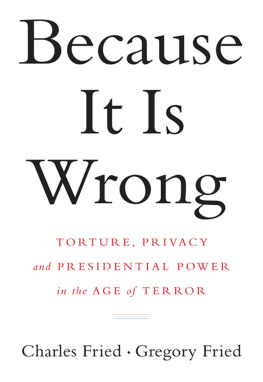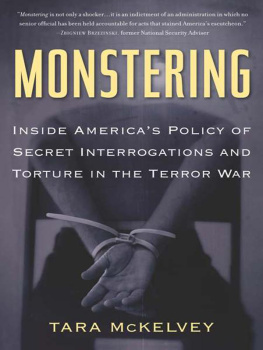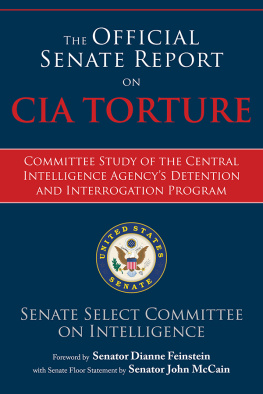TORTURE, INTELLIGENCE AND SOUSVEILLANCE IN THE WAR ON TERROR
Classical and Contemporary Social Theory
Series Editor: Stjepan G. Mestrovic, Texas A&M University, USA
Classical and Contemporary Social Theory publishes rigorous scholarly work that re-discovers the relevance of social theory for contemporary times, demonstrating the enduring importance of theory for modern social issues. The series covers social theory in a broad sense, inviting contributions on both classical and modern theory, thus encompassing sociology, without being confined to a single discipline. As such, work from across the social sciences is welcome, provided that volumes address the social context of particular issues, subjects, or figures and offer new understandings of social reality and the contribution of a theorist or school to our understanding of it. The series considers significant new appraisals of established thinkers or schools, comparative works or contributions that discuss a particular social issue or phenomenon in relation to the work of specific theorists or theoretical approaches. Contributions are welcome that assess broad strands of thought within certain schools or across the work of a number of thinkers, but always with an eye toward contributing to contemporary understandings of social issues and contexts.
Also in the series
The Social Pathologies of Contemporary Civilization
Edited by Kieran Keohane and Anders Petersen
ISBN 978-1-4094-4505-0
Utopia: Social Theory and the Future
Edited by Michael Hviid Jacobsen and Keith Tester
ISBN 978-1-4094-0699-0
Fallgirls: Gender and the Framing of Torture at Abu Ghraib
Ryan Ashley Caldwell
ISBN 978-1-4094-2969-2
First published 2013 by Ashgate Publishing
Published 2016 by Routledge
2 Park Square, Milton Park, Abingdon, Oxon OX14 4RN
711 Third Avenue, New York, NY 10017, USA
Routledge is an imprint of the Taylor & Francis Group, an informa business
Copyright 2013 Vian Bakir
Vian Bakir has asserted her right under the Copyright, Designs and Patents Act, 1988, to be identified as the author of this work.
All rights reserved. No part of this book may be reprinted or reproduced or utilised in any form or by any electronic, mechanical, or other means, now known or hereafter invented, including photocopying and recording, or in any information storage or retrieval system, without permission in writing from the publishers.
Notice:
Product or corporate names may be trademarks or registered trademarks, and are used only for identification and explanation without intent to infringe.
British Library Cataloguing in Publication Data
Bakir, Vian, 1971-
Torture, intelligence and sousveillance in the War on Terror : agenda-building struggles. -- (Classical and contemporary social theory) 1. Communication in politics--Great Britain. 2. Communication in politics--United States. 3. Propaganda analysis--Great Britain. 4. Propaganda analysis--United States. 5. Leaks (Disclosure of information)--Great Britain. 6. Leaks (Disclosure of information)--United States. 7. Whistle blowing--Great Britain. 8. Whistle blowing--United States. 9. War on Terrorism, 2001-2009, in mass media. 10. Political prisoners--Abuse of--Great Britain. 11. Political prisoners--Abuse of--United States.
I. Title II. Series
The Library of Congress has cataloged the printed edition as follows:
Bakir, Vian, 1971-
Torture, intelligence and sousveillance in the War on Terror : agenda-building struggles / by Vian Bakir.
pages cm. -- (Classical and contemporary social theory)
Includes bibliographical references and index.
ISBN 978-1-4094-2255-6 (hardback)
1. War on Terrorism, 2001-2009--Moral and ethical aspects. 2. Torture--Government policy--Great Britain. 3. Torture--Government policy--United States. 4. Domestic intelligence. 5. Military intelligence. 6. Torture in mass media--Political aspects. 7. Communication in politics. 8. Terrorism--Prevention. I. Title.
HV6432.B347 2013
363.325165--dc23
2013000260
ISBN 9781409422556 (hbk)
The nature of the subject matter together with the instability and volume of the archives meant that this was a confusing, and sometimes overwhelming, book to write, and of course, the issues are ongoing and unresolved.
Heartfelt thanks goes to Andy McStay, who read through my almost-final draft with compelling lucidity. Thanks also to Neil Jordan from Ashgate a superb Commissioning Editor. And I suppose I should thank the Cat of Many Names for keeping my lap warm over the past three years of writing, although I did not appreciate her sitting on my keyboard.
Vian Bakir


